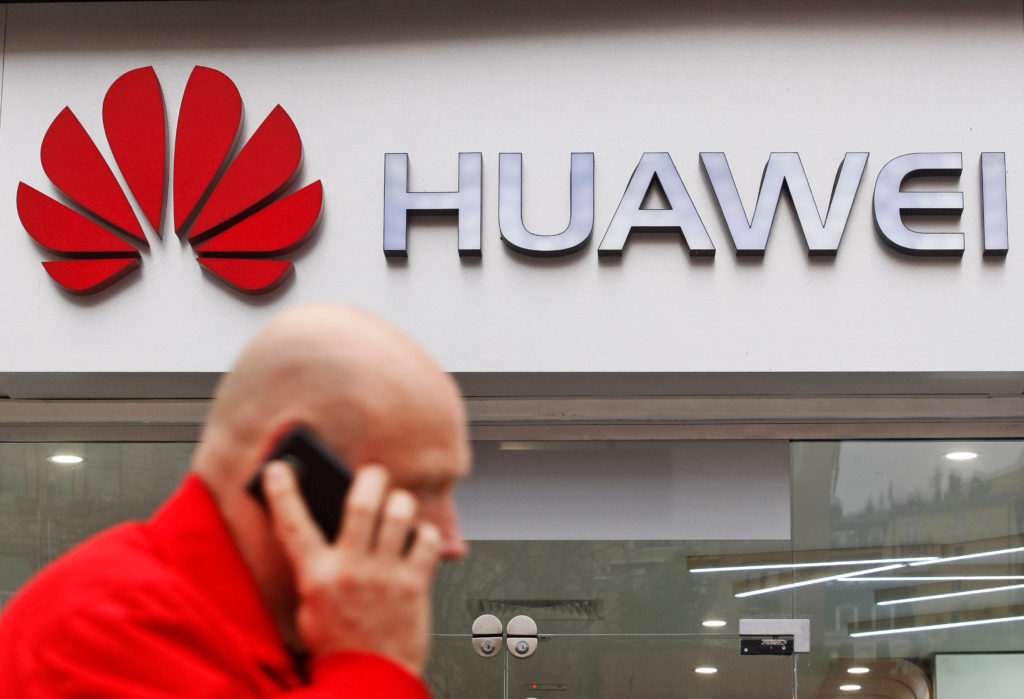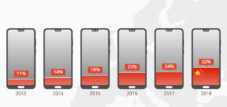Huawei's meteoric rise and the serious problems with the USA
When the United States Department of Justice unveiled its cases against smartphone maker Huawei on Monday, it tarnished the reputation of one of China's rising tech stars. The proceedings against the company, which holds a 27 percent market share in China , include a range of allegations, such as stealing trade secrets from rival T-Mobile and circumventing US sanctions against Iran. The US Department of Justice accuses the Chinese technology company Huawei of violating Iran sanctions and industrial espionage.
The company denies the allegations. Huawei has experienced a meteoric rise in recent years. While its global revenue amounted to US$18.3 billion in 2008, it reached US$108.5 billion last year. In Germany, the company is primarily known as a smartphone manufacturer. Furthermore, Huawei has recently been mentioned more frequently in the media in connection with the rollout of 5G networks – an area in which South Koreans and Chinese companies are leading the way, as a recent patent analysis shows.
In 2018, Huawei surpassed $100 billion in revenue for the first time and was praised for its success and performance. As the Chinese smartphone market consolidated, a market share that had been declining in volume since 2016, Huawei was able to increase its market share.
The scandal now proves that Chinese companies are right to engage in international cooperation. Huawei allegedly attempted to copy T-Mobile's Tappy phone testing robot, violating a non-disclosure agreement between the two companies. According to CNN, a Huawei employee even tried to steal the arm of a Tappy device.
China struck back at the US on Tuesday, saying that “political motives and manipulation” were the cause of the indictment and that the US was trying to “kill” legitimate Chinese business activities. The US also revealed that it arrested Huawei CFO Meng Wanzhou in Canada in December and intends to extradite her to China.
The steep rise of Huawei and the serious problems with the USA
When the United States Justice department unsealed its cases against smartphone maker Huawei on Monday, it tarnished the reputation of one of China's rising tech stars. The case against the company that holds a 27 percent market share in China includes a slew of allegations including the stealing of trade secrets from competitor T-Mobile and skirting US sanctions against Iran. The US Department of Justice accuses the Chinese technology group Huawei of violating Iranian sanctions and industrial espionage.
The company rejects the allegations. Huawei has experienced a steep rise in recent years. In 2008, global sales amounted to 18.3 billion US dollars, whereas last year they were 108.5 billion US dollars. In Germany, the company is primarily known as a smartphone manufacturer. In addition, the media have recently reported more frequently on the 5G expansion of Huawei. An area in which South Koreans and Chinese are the leaders, as a current patent analysis shows.
In 2018, Huawei surpassed US$100 billion in revenue for the first time, being lauded all around for its success and prowess. It was able to grow its market share throughout the consolidation of the Chinese smartphone market that has been decreasing in volume since 2016.
The scandal now proves those weary of Chinese companies in international cooperations right. Allegedly, Huawei tried to copy T-Mobile's phone testing robot called Tappy in violation of a confidentiality agreement between the two companies. A Huawei employee supposedly even attempted to steal the arm of a Tappy device according to reporting by CNN.
China on Tuesday lashed back at the US saying that “political motives and manipulation” were the cause for the indictment and that the US was trying to “kill” legal Chinese business operations. The US also revealed that it had arrested Huawei CFO Meng Wanzhou in Canada in December and is looking to extradite her to China.


